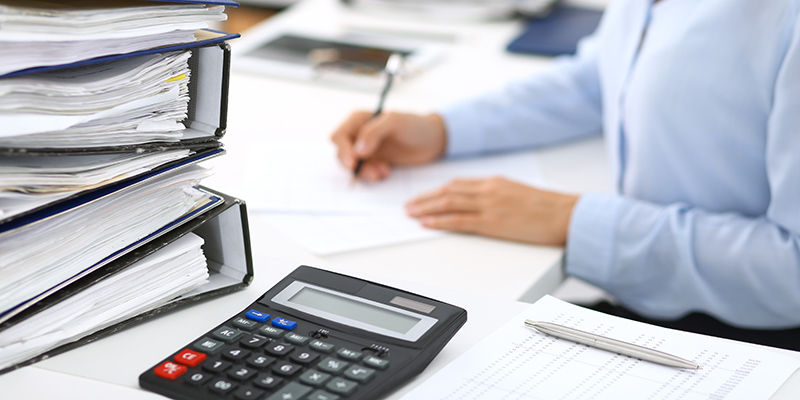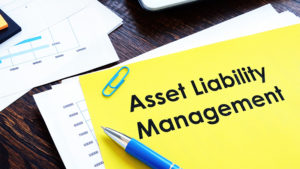An HOA Accounting Guide For HOA Board Members

Accounting is arguably one of the most challenging aspects of managing an HOA community. Yet, HOA accounting remains an integral part of your job as an HOA board member.
Browse By Category
Sign up for Our Newsletter
Accounting is arguably one of the most challenging aspects of managing an HOA community. Yet, HOA accounting remains an integral part of your job as an HOA board member.
The Importance of Proper HOA Accounting
A homeowners association functions in very much the same way as any business organization. Though it doesn’t exist to earn a profit, an HOA does earn revenue and incur expenses, as well. The HOA board has a responsibility to protect the association’s assets and manage its finances. Therefore, you should practice proper accounting and financial management to ensure your HOA remains in good financial condition.
Poor HOA financial management can lead to a number of possible consequences both for the HOA and its board. For one thing, bad HOA bookkeeping can cause a major financial fiasco within the association. You might end up overspending and making poor financial decisions as a result of inaccurate records.
Insufficient funds is another possible consequence of poor homeowners association accounting. When you fail to budget your expenses properly, the HOA might run out of money. This will inevitably force your board to either take out a loan or charge special assessments to homeowners. And, if you have any experience with HOAs at all, you’d know that homeowners hate having to pay special assessments on top of their monthly dues.
Your HOA board has a duty to manage the association’s finances correctly. In some cases, members of the community might take legal action against your board for mismanagement. And, although state laws and your governing documents might offer you some protection, court rulings may still find you personally liable for poor HOA accounting and financial management.
What Basis of Accounting Should You Use?
There are three accounting methods available to associations: the Cash Basis, the Accrual Basis, and the Modified Accrual Basis. These methods dictate the timing of recording your HOA’s income and expenses. But, which one should your HOA use?
Using the Cash Basis of Accounting, you record income and expenses when money changes hands. That means you only report transactions when you pay for them or receive payment for them. Using this method, no such account titles like Assessments Receivable or Accounts Payable appear on your financial statements.
Using the Accrual Basis of Accounting, you record income and expenses as they occur. That means you report income when you earn them and expenses when you incur them. Using this method, Assessments Receivable and Accounts Payable account titles do appear on your financial statements.
Finally, the Modified Accrual Basis of Accounting follows the Accrual Basis for reporting revenue and the Cash Basis for reporting expenses. This method is also known as the Modified Cash Basis.
A majority of experts and accountants agree that the Accrual Basis is the best accounting method to use. It’s the only method that gives you an accurate picture of your finances. Plus, it’s also the only method that conforms with the Generally Accepted Accounting Principles (GAAP).
What Are the HOA Financial Statements?
The homeowners association financial statements are monthly and yearly reports that act as a clear representation of your HOA’s financial health. There are a number of different financial statements you should prepare every month. According to most HOA accounting rules and GAAP, though, the following are essential:
Balance Sheet
 The HOA balance sheet compares your association’s assets against your liabilities and owner’s equity. It gives you a complete look at your HOA’s net worth, including how much money you have in your bank account.
The HOA balance sheet compares your association’s assets against your liabilities and owner’s equity. It gives you a complete look at your HOA’s net worth, including how much money you have in your bank account.
This statement gets its name from its guiding principle — your balance sheet should always be balanced. That means your assets should equal your liabilities plus equity. It follows the equation below:
Assets = Liabilities + Equity
Income Statement
This one’s pretty straightforward. Your income statement depicts your association’s income and expenses for the period specified (usually for the month). It lists down all your revenues as well as your expenses, deducting the latter from the former to arrive at your net income or loss.
General Ledger
Your general ledger is where you record all of your accounting transactions following the date of occurrence and a numerical order you set known as the HOA chart of accounts. It is the basis of all your financial reports.
Accounts Payable Report
Your accounts payable report details all of your association’s payables. In other words, it contains all of your unpaid debt. This report has a receivable counterpart, usually known as the account delinquency report, which shows all of the money owed to the association.
Cash Disbursements Ledger
Lastly, the cash disbursements ledger lists down all of the checks your association has written and issued for the period specified. Otherwise known as a check register, this report consists of information such as the check’s recipient, the check date, and a description of the expense. It should also outline the check numbers, chart of accounts numbers, and any related invoice numbers.
What Is an HOA Audit?
Simply put, an HOA audit is a comprehensive analysis of your association’s accounting records, including your financial statements. It objectively evaluates your internal accounting processes as well as the overall health of your association. An audit identifies any inaccuracies in your records in an effort to remedy them.
How often should an HOA be audited? It depends on your state laws and what your governing documents say. Some HOA bylaws require yearly audits, while others only require one every three or so years. Audits can be expensive, usually costing between $4,000 to $6,000, which is why many HOAs prefer to conduct yearly financial reviews instead.
Audits shouldn’t be performed in-house by the HOA. Instead, it should be performed by a Certified Public Accountant. If you have an HOA management company, they may offer audits as part of their HOA accounting services.
What Are Some HOA Accounting Best Practices?
Managing your association’s finances isn’t always easy, particularly if you don’t know where to start. Here are some tips for proper accounting for homeowners associations board members:
1. Familiarize Yourself With State Laws
Not all accounting rules are consistent across all states. Some have their own laws that dictate what homeowners associations can and can’t use. For instance, even though there are three accounting methods, California law directs that HOAs should use the Accrual Basis when preparing their pro forma operating budget.
Understanding the laws special to your state will save you a lot of time and trouble. It can also protect your association and board from potential legal issues.
2. Accounts Should Be Specific and Future-Proof
When crafting your chart of accounts, it’s a good idea to be as specific as you can. For example, when tracking income, don’t just use the same general account title for all types of income. Use more specific categories such as “Assessment Income” and “Newsletter Advertising Income.”
The same goes for expenses. Break down your expense accounts into more specific accounts such as “Legal Fees” and “Maintenance Supplies.” In doing so, you can more accurately track where your HOA’s money is going.
You should also be wary of creating account titles on the fly. Not all expenses take place every year, but you should still plan for them to be categorized under the same account regardless of when they occur. Don’t use “Events Income” one year and then “Income from Events” two years later. Consistency is key here.
3. Add and Deduct from the Right Accounts
HOA accounting can be very confusing — enough to make you use the wrong accounts when recording revenue and expenses. Far too many associations have made the mistake of deducting from their operating fund when they meant to deduct money from their reserve fund. It might seem like a small error, but it can throw your whole accounting setup into chaos.
4. Prevent Fraud With Internal Controls
One of the best homeowners association accounting rules to adopt is to exercise internal controls. That means not letting a single person have control over every financial department. Ideally, the person who writes the association’s checks should be different from the person handling receivables.
You should also make sure that checks made out to your HOA go directly into the proper bank account. It’s also a good idea to assign someone, usually the HOA manager, to review all invoices, deposits, and bank statements.
It might seem tedious, but establishing these internal controls can deter fraud and prevent theft within your association. After all, your board has a duty to protect your HOA finances and assets.
5. Compare Income and Expenses
 A good way to keep track of your income and expenses over the course of a 12-month period is to create an HOA accounting spreadsheet.
A good way to keep track of your income and expenses over the course of a 12-month period is to create an HOA accounting spreadsheet.
Recording your financial transactions in this spreadsheet will allow you to identify any seasonal trends or potential gaps in your finances.
If a certain expense spiked compared to a previous month or year, this spreadsheet will tell you that in a single look. From there, you can investigate further or ask your HOA management company what went wrong.
6. Get Help
There’s no shame in asking for help, especially when it comes to a subject as difficult and confusing as accounting. Many HOA management companies offer accounting and other financial services as part of a package deal.
If you only need help with accounting, though, it might be better to seek help from an accounting firm, CPA, or a financial management company.
Additionally, there is plenty of available software that can assist self-managed communities. Some offer full-service HOA management features, while others focus on specific modules. An HOA accounting software could be just the thing you need.
What If a Homeowner Goes Bankrupt?
When a homeowner declares bankruptcy, the first thing your HOA board should do is check with your attorney or management company. Keep in mind that there are certain bankruptcy laws that protect bankrupt homeowners. Therefore, you may not be able to push through with any pending legal cases with the homeowner or collect past due balances.
Still, it’s important to be considerate of the bankrupt homeowner. Understand their situation and never reveal the status of their financial health to other homeowners in the community. It’s also not recommended to restrict their access to amenities or shut off their utilities during a trying period in their life.
Your Duty as a Board Member
As much as you’d want it to be smooth sailing from here, the truth is that HOA accounting is a subject that takes a lot of time and effort to master. For this reason, a lot of HOAs choose to seek professional help.
But, as an HOA board member, you should do your part to at least understand the basics of accounting and financial management. After all, even experienced professionals aren’t invulnerable to committing mistakes. By familiarizing yourself with accounting, you can safeguard your association’s finances.
If you’re on the hunt for an HOA management company, our online directory lists the best ones by location. Start your search with help from HOA Management today.
RELATED ARTICLES:
- Why Accrual Accounting For HOAs Is The Best Accounting Method
- How The HOA Board Should Review HOA Finances Properly
- Why Is An HOA Annual Audit Necessary?
Trending Now
Related Article
Sign up for Our Monthly Newsletter
Sign up below for monthly updates on all HOA Resource

















